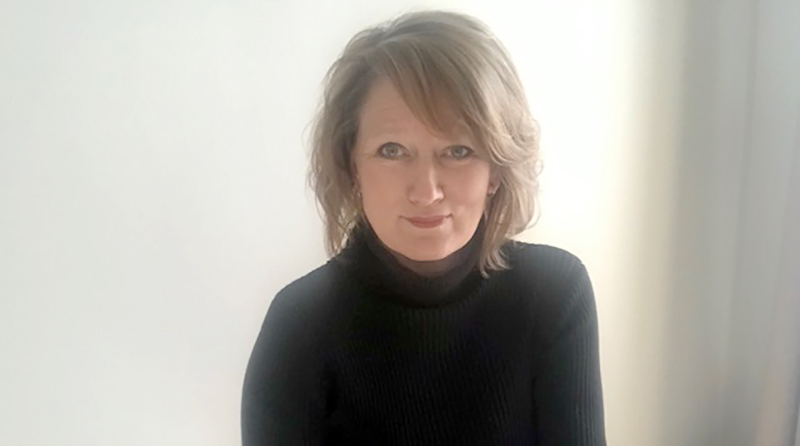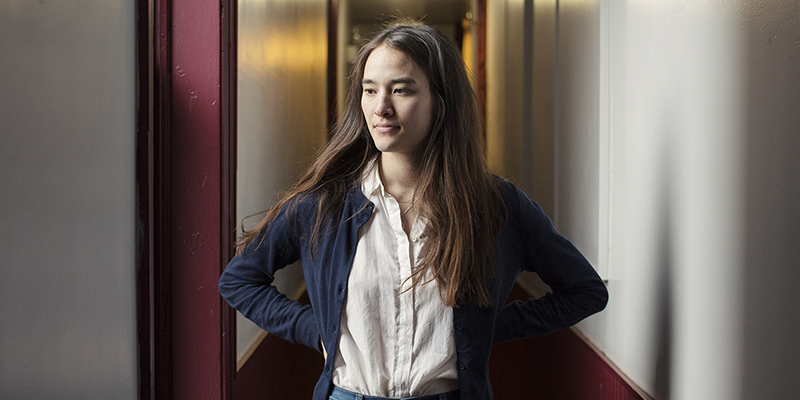For Angela Shook, becoming an End-of-Life Doula meant learning to be an active listener, staying present, and confronting her own fears about mortality.
Shook, president of the National End-of-Life Doula Alliance and a volunteer program manager at Hospice Care of Southwest Michigan, enrolled in the UVM End-of-Life Doula Professional Certificate Program in 2018. She then went on to complete the Companion Animal End-of-Life Doula Professional Certificate at UVM in 2021.
“I feel like I’m a natural nurturer. I like to take care of people, and I like serving others,” she says.
“What I learned at UVM is to be present. To walk beside the dying and not try to ‘fix’ things for them. It’s an important lesson and not an easy one.”
Angela Shook, UVM End-of-Life Doula Alumna
UVM’s doula certificate is an online 8-week program for people interested in the growing demand for end-of-life support. The course is designed for aspiring doulas, end-of-life care practitioners, hospice and palliative care volunteers, health care professionals, and family caregivers.
End-of-life Doulas complement the care provided by family members and friends, and medical, palliative, and hospice professionals, within the settings of hospitals, senior care facilities, and homes.
Doulas support clients with individualized, compassionate care in many ways, including emotional, spiritual, informational, and physical support. A doula can help lower stress levels, aid in comfort, and promote personalized, even positive, dying passages for clients and their loved ones.
A Comprehensive End-of-Life Doula Certificate Program
Shook, who studied journalism and public relations in college, started her career as an advertising and communications director in real estate. She went on to work at Children’s Miracle Network Hospitals before joining Hospice Care of Southwest Michigan, where she manages more than 200 volunteers. She is also a practicing Dnd-of-Life Doula.
“Like many of us, I’ve had a winding career path. I ended up where I was meant to,” she says. It’s a real gift to be part of someone’s life at such a transitional and sacred spot.”
One of the things that inspired Shook to pursue end-of-life care was her grandfather’s positive experience with Hospice. “I was inspired to learn more and to do more,” she adds. “I was thrilled to learn the role of an End-of-Life Doula. It felt like I found my calling.”
In the UVM program, Shook spent at least 10 hours a week doing coursework, including readings, online discussions, and assignments. She found the online program to be engaging, interactive, and comprehensive.
Recorded modules, in-depth readings, and thought-provoking activities were well organized and allowed Shook to continue working full time, volunteering, and getting field experience.
“In the UVM End-of-Life Doula Certificate Program, one of the favorite things I learned was to be an active listener, to hold space for someone, and not to bring my own thoughts, agenda, or bias to the table.”
Angela Shook, UVM End-of-Life Doula Alumna
“We learned something called ‘WAIT,’ which stands for Why Am I Talking? I loved that. It helped me so much. You do have awkward silences or have difficult conversations, so you have to meet that person where they are. It’s about letting us know what they need, rather than us sharing what we think they need.”

The UVM program was developed by the The Robert Larner, M.D. College of Medicine at The University of Vermont, the University of Vermont has partnered with Cabot Creamery Cooperative.
“There’s a lot of intense and personal work that goes into this course. I think it’s what makes it such a rich experience,” Shook says. “It helped me to not only be an End-of-Life Doula and serve others at death. It also helped me address my own mortality and fears, and it was life-changing and the best decision I think I’ve made along my doula journey.”




